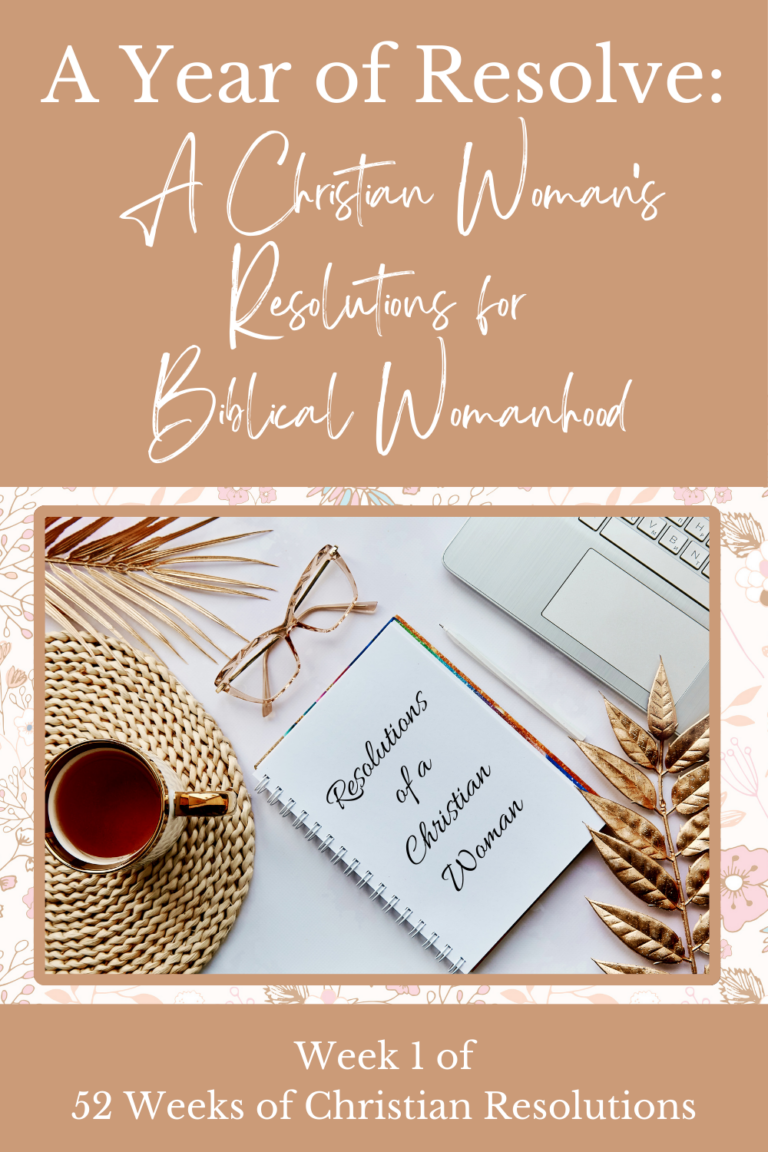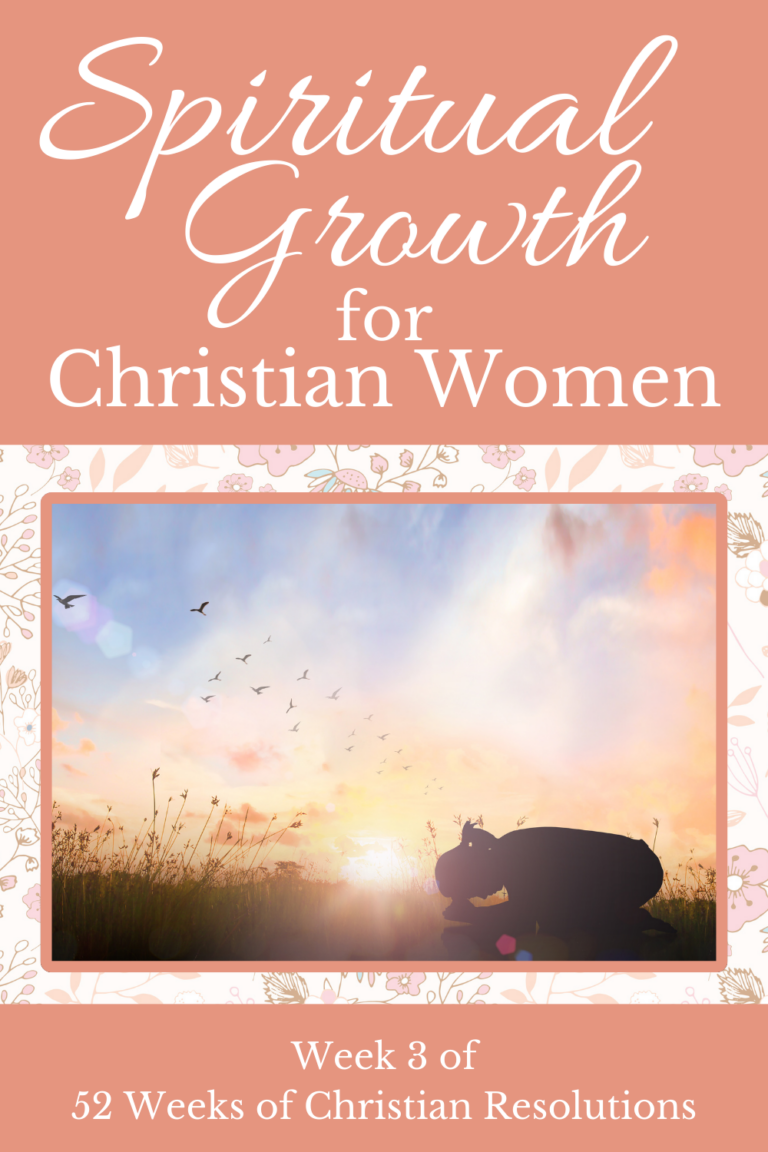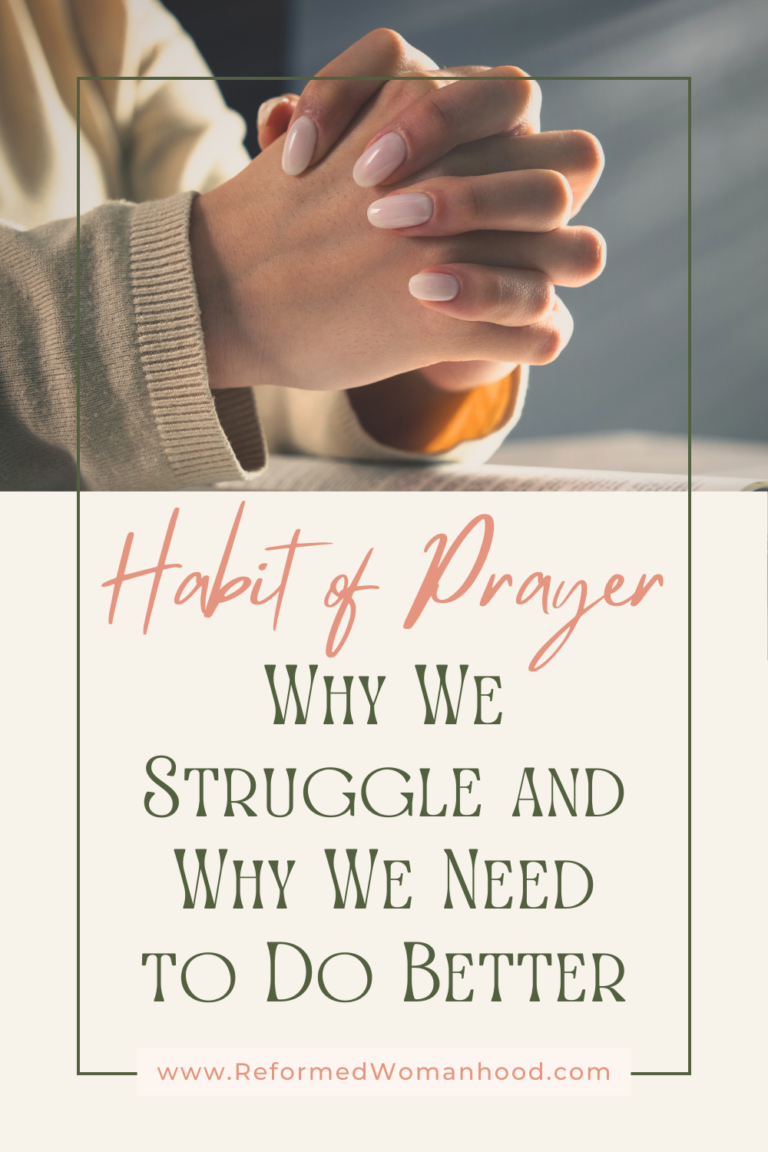How We Need To Be Reading God’s Word
Hello. Welcome to our series “A Year of Resolve” where we are digging into Jonathan Edwards’ resolutions and learning how to know God better and bring Him glory. Today we are focusing on how we need to be reading God’s Word.
Let me share with you Jonathan Edwards’ 28th resolution. He wrote: “Resolved, to study the Scriptures so steadily, constantly and frequently, as that I may find, and plainly perceive myself to grow in the knowledge of the same.”
Ladies, we need to be intentional. Like Edwards, we need to see reading God’s Word as more than a casual commitment. Edwards understood the transformative power of God’s Word and was determined to be shaped by it, and we should have the same determination.
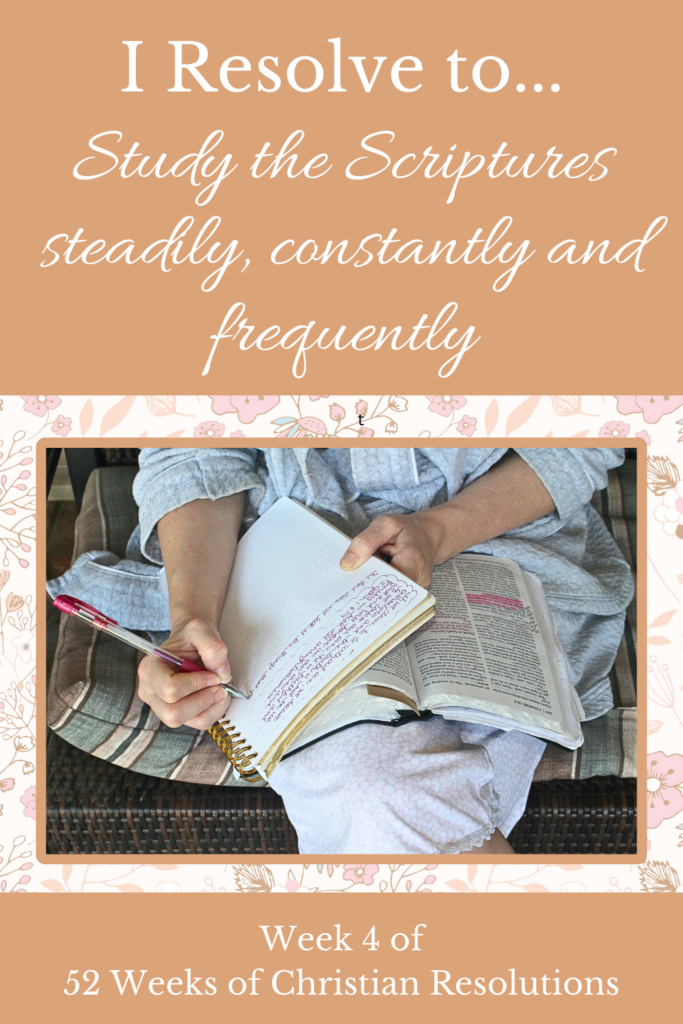
Breaking Down the Resolution
To understand Edwards’ commitment, let’s look at the two parts of this resolution. First, he uses three words to describe how he’ll study Scripture: “steadily, constantly and frequently.” He was committing to consistency. Bible study was an indispensable part of his daily activities.
In the second part of the resolution, he says he wants to “find and plainly perceive” his own growth. He needed evidence that his knowledge of God’s Word was increasing. Edwards wanted to be able to see that his understanding of God’s Word was growing year after year.
Think about how this differs from how we often approach Scripture today. Sometimes we dig in deep during retreats or church programs but then we may have times where our Bible sits untouched from Sunday afternoon until the next Sunday morning. Or we might read daily but without really engaging. Edwards is calling us to something different – a steady, persistent commitment to not just reading, but truly studying God’s Word with the expectation that it will change us.
Edwards’ resolution deeply aligns with God’s design for how we should interact with His Word. Scripture isn’t meant to be skimmed; we should understand it, memorize it, and integrate it into our lives.
Scripture itself shows us the importance of this kind of dedication to reading God’s Word.
First, let’s look at 2 Timothy 3:16-17: “All Scripture is breathed out by God and profitable for teaching, for reproof, for correction, and for training in righteousness, that the man of God may be complete, equipped for every good work.” Think about that phrase “breathed out by God.” These aren’t just ancient writings – every word is from God. And notice the purpose – teaching us truth, reproof our incorrect thoughts, correction of our actions, and training to be more Christ-like. God’s Word effects every part of our lives, making us complete and equipped.
Another verse that shows us the importance of studying Scripture is Joshua 1:8. As Joshua was about to lead God’s people into the Promised Land, God tells Joshua, “This Book of the Law shall not depart from your mouth, but you shall meditate on it day and night, so that you may be careful to do according to all that is written in it.” God could have given him instructions to prepare him to lead or about strategies for taking over the land but God’s advice in that moment was about meditating on Scripture.
A Few More Great Verses
Let’s also look at Psalm 119:11. David writes, “I have stored up your word in my heart, that I might not sin against you.” We see David being intentional to not just read God’s Word but store it up. When we study Scripture the way Edwards resolved to do, we’re building up truth in our hearts that the Holy Spirit can bring it to mind as we need it.
But he answered, “It is written, “‘Man shall not live by bread alone, but by every word that comes from the mouth of God.’” Matthew 4:4
“Hear, O Israel: The Lord our God, the Lord is one. You shall love the Lord your God with all your heart and with all your soul and with all your might. And these words that I command you today shall be on your heart. You shall teach them diligently to your children, and shall talk of them when you sit in your house, and when you walk by the way, and when you lie down, and when you rise. You shall bind them as a sign on your hand, and they shall be as frontlets between your eyes. You shall write them on the doorposts of your house and on your gates.” Deuteronomy 6:4-9
How Can We Be Like the Bereans?
Let’s look at the Bereans in Acts. They are known for “examining the Scriptures daily.” In Acts 17:11 it says, “Now these Jews were more noble than those in Thessalonica; they received the word with all eagerness, examining the Scriptures daily to see if these things were so.” Notice their attitude, attention, and where they find authority.
- Their attitude is eager, and they anticipate that the Scriptures would guide them.
- They are attentive – examining the Scriptures not just casually reading.
I’m going to throw in some catechism here and share question 157 from the Westminster Larger Catechism. It says,
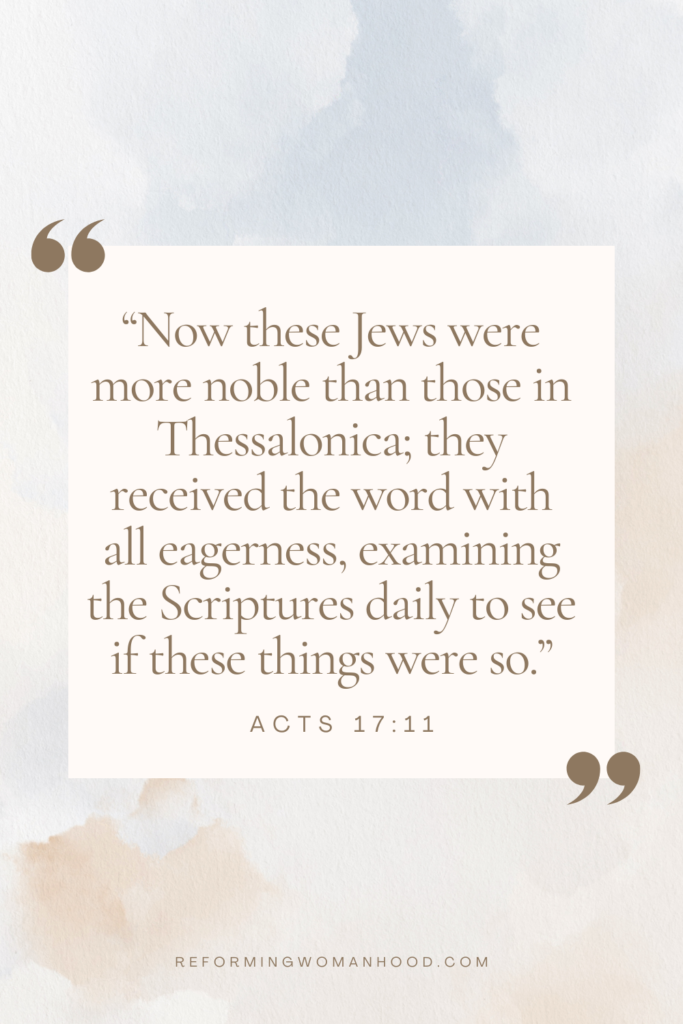
How is the Word of God to be Read?
The holy scriptures are to be read with a high and reverent esteem of them; (Ps. 19:10, Neh. 8:3–6,10, Exod. 24:7, 2 Chron. 34:27, Isa. 66:2) with a firm persuasion that they are the very word of God, (2 Pet. 1:19–21) and that he only can enable us to understand them; (Luke 24:45, 2 Cor. 3:13–16) with desire to know, believe, and obey the will of God revealed in them; (Deut. 17:19–20) with diligence, (Acts 17:11) and attention to the matter and scope of them; (Acts 8:30,34, Luke 10:26–28) with meditation, (Ps. 1:2, Ps. 119:97) application, (2 Chron. 34:21) self-denial, (Prov. 3:5, Deut. 33:3) and prayer. (Prov. 2:1–6, Ps. 119:18, Neh. 8:6,8)
3. They recognize the authority of God’s Word over the teaching of men.
These passages show us how God intended us to interact with Scripture. Edwards’ resolution wasn’t just a personal choice – it was a commitment to engage with God’s Word in the way God instructed. The Bible isn’t meant to sit on a shelf and occasionally be referenced. It’s meant to be our daily bread. It should be our constant meditation. God’s Word should be our guide and delight.
This kind of deep, consistent study changes us from being people who know about God to people who truly know God. We become someone who not only has information about faith but also someone who is shaped by faith.
Actually, Reading God’s Word and Studying It
How we can take Edwards’ resolution and apply it in our lives as modern Christian women. Our lives look very different from Edwards’ life in 18th century America, but the importance of being in God’s Word remains the same.
There is not one Bible study routine that will work for everyone. You will need to find a routine that works with your season of life. If you’re a mom with young children, your Scripture study will look different from a mom whose children are grown, and that’s okay. The key is to create a routine that helps you be consistent.
Let’s Get Practical
Let me share some practical ways to add Scripture study to your day in different life situations:
For the working woman who commutes and the mom who spends a lot of time chauffeuring kids around you can use your drive time to listen to the Word. Audio Bibles are a wonderful tool. You can listen to specific passages on repeat or entire books of the Bible during your commute. Use that time to get a good overview of the book before diving deeper in your quiet time.
Mothers of young children – Instead of being disappointed that you cannot get that perfect hour of silence each morning, try saturating your day with Scripture. Keep your Bible open on the kitchen counter and read a few verses every time you go to reheat your coffee. Write a verse on a notecard and put it by the changing table or above the sink. To turn those places and tasks into quick opportunities for meditating on God’s Word.
For those with more flexible schedules: Try creating a more structured study time. Remember – Edwards talked about growing in knowledge, not just accumulating information. Use a journal to write down questions and insights as you read. Look for connections between different parts of Scripture. Draw pictures or write out verses if those things help you understand and remember the lessons. List out different ways to apply what you have learned to your life.
Are We Growing?
But how do we know we’re growing in our understanding of Scripture?
Here are some practical ways we can measure growth:
Keep a Scripture journal where you write down what you’re learning. Every once in a while, look back through these entries to see patterns of growth.
Share what you’re learning to others – whether that’s in formal Bible study settings or just in conversations with friends. Being able to explain Scripture to others is a clear sign of growing understanding.
Notice how your responses to life’s challenges are changing. Are you looking at your trials with a greater assurance of God’s sovereignty? Are you seeing more connections within Scripture? Do you understand the timelines and genealogies a bit better? That’s growth!
The Goal of Reading God’s Word
The goal isn’t perfection; it’s progress. Some days you might have thirty minutes for in-depth study but other days, you might only have time to meditate on a single verse. What matters is steady, constant, frequent engagement with Scripture
Remember, that we’re not just studying an ancient text; If we truly believe that it is God’s Word and it is profitable for teaching, for reproof, for correction, and for training in righteousness how can we neglect reading it? Not only that but how can we not do everything in our power to saturate our lives with it and strive to understand it more and more every day? The Word of God is worth our intentional and fervent study.
And that brings us to our close today. As we wrap up our time together, I want us to read Edwards’ resolution again – “to study the Scriptures so steadily, constantly and frequently, as that I may find, and plainly perceive myself to grow in the knowledge of the same.”
A Challenge For You
I want to challenge you to rewrite this resolution in your own words and out it somewhere you will see it often. When you see it this week, I want you to say a quick prayer thanking God for His Word and asking Him to give you a greater desire to study it.
I’d also life you to spend the next week reflecting on what Scripture itself tells us about the power of God’s Word.
Hebrews 4:12 says, “For the word of God is living and active, sharper than any two-edged sword, piercing to the division of soul and of spirit, of joints and of marrow, and discerning the thoughts and intentions of the heart.”
Every time we come to the Scriptures we are coming to the living and active Word of God that has the power to change us. I pray that keeping that perspective motivates you to dive into God’s Word more this week.
Check out the another resolution here


